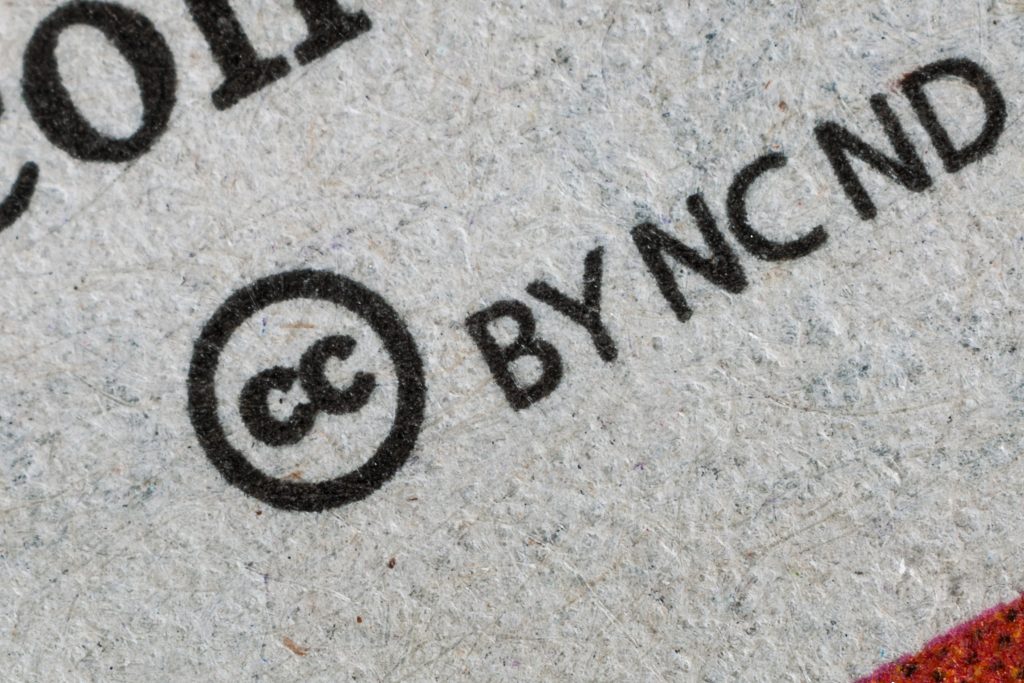Music Fan-Tipping: How It Could Change the Music Industry

Music fan-tipping is a virtual way for fans to contribute money to their favorite artists. The music community has tried to find new ways to support their favorite musicians during the COVID-19 pandemic and now many streaming services and websites offer this service.
History of Music Fan-Tipping
Many artists had to cancel live performances, which impacted their ability to generate income based on their music. During the pandemic, artists had to come up with new ways to create their music, connect with their fans, and generate income.
This change impacted musicians’ ability to generate income because live performances allow artists to interact with their fans. Artists also use these performance to sell merchandise and collect money from ticket sales. As an alternative to this loss in income, fans can now send small sums of money through tipping.
How It Works
Artist fan-tipping works similarly to tipping at businesses and restaurants. Artists can set up a space where fans can leave a small sum of money for a musician they support. This money can come from virtual cash apps like PayPal or virtual currencies like Bitcoin.
Artist fan-tipping has a greater importance than just funding artists. Music fan-tipping is the foundation of fan-investments. This is reflective of a cultural shift towards a more interactive music experience in a virtual world. The music community has shown great interest in their favorite artists and want to be a part of their journey to success. Fans now have the ability to follow data trends in their favorite artists’ music and be a part of the creative process in a virtual environment. People are investing in an artist to contribute support and be a pivotal part of an artist’s career.
Due to the lack of live music venues, artists not only suffered a revenue loss, but they faced the challenges of attracting fans. These musicians had to get creative about promoting their music online and connecting with their fans virtually. The music community created alternative ways to connect with their favorite artists. Some promoted their favorite artists through live presentations or podcasts sessions. Others invested in resources for music education or created cumulative lists of online performances of different artists. These elements became helpful to advertise an artist and build a customer base.
Music Fan-Tipping Platform
The rise in self-distribution of music has led to a community marketing trend as well. Artists can connect to a global community where active fans find it fun to promote their favorite music. This fan-to-fan interaction helps grow an interconnected group of people to support artists. Some artists choose to promote their own fan-tipping “jar” through their own platform. Artists can set up their own pages on websites like Patreon or GoFundMe. Some artists let their fans decide how much they want to pay for tickets to virtual concerts.
Streaming Platforms Options
Other artists choose to use other streaming services or websites to promote fan-tipping. Soundcloud, Twitch, Spotify, and YouTube have created their own tipping services. Each streaming platform has its own business format to allow fan-tipping on its platforms.
Soundcloud was one of the first major streaming platforms to include fan-tipping through Bandsintown. This platform charged a $10 flat fee for fans to enter the website and allowed fans to tip freely. However, it was not decided how much of the tip goes towards an artist.
On Twitch, fans can tip their favorite artists through cryptocurrencies and recently introduced payments through PayPal. Twitch also includes “cheers” which pay a bigger portion of money through donations rather than subscriptions. This model more directly supports fans’ favorite artists. Twitch has a more inclusive model and exposes artists to a wider audience to attract more fans.
Spotify introduced Artist Fundraising Pick that allows musicians to pin specific areas on their profile designated to donations. This website also lists causes to support through GoFundMe or music relief projects. Artists can get paid through PayPal or CashApp and promote their own causes on this website. It is uncertain if Spotify intends to continue the service after the pandemic ends.
YouTube has created a fan-tipping service called Super Thanks which will be available by the end of 2021. Super Thanks allows the fans to donate specific amounts to their favorite content creators. YouTube will take 30% of the profits. Super Thanks joins the streaming platform’s other two paid digital services: Super Chat and Super Stickers.
Independent Website Options

Other independent music fan-tipping websites have individual models to send donations, including PickleJar, Buy Me a Coffee, and JamJar. These websites and apps are donations that more directly impact artists because a portion of their donations does not go to streaming services.
The PickleJar app is an application that can be downloaded on smartphones or computers for artists to connect with fans and launch their platform. It offers a portfolio of artist-first technologies to create their profiles and promote their platforms. PickleJar is a non-profit that charges a flat fee and artists receive 100% of the proceeds and get all the data about their fans.
Kristian Barowsky, the President at PickleJar, said the hope is that the industry evolves to a point where artists come first.
“We believe at PickleJar it’s going to be the catalyst for the largest creative revolution since the Renaissance,” Barowsky said.
Buy Me a Coffee is a website and app where fans can donate to their favorite artists using their specialized link to the platform. Buy Me a Coffee is not limited to musicians. All types of business owners and content creators can make a profile on this website. This platform has a partnership with PayPal and Stripe so fans can directly donate there. Fans may also use Apple Pay, Google Pay, or credit cards. However, Buy Me a Coffee does charge a 5% service charge. This website also allows artists to have ownership of their content and their supporters.
The JamJar App is an application where fans can request an artist or DJ to play songs for tips. Fans can tip their favorite artists who promote their own music on this app and give notifications when artists are performing. There are also resources for artists to meet their fans, and for fans to discover new artists. Fans can donate through money apps and artists can easily transfer money from the app to their bank accounts
Best Practices for Artists and Fans

Tips for Artists
While each platform is different for music fan-tipping artists looking to engage in fan-tipping may benefit from these general tips:
– Know your brand: Artists can use fan-tipping as an alternative revenue method or a singular revenue method. But if the musician does not feel comfortable with fan-tipping, other revenue methods might be more suited for them.
– Understand the platform you use: Whether it is your own website, a streaming site, or an independent tipping site, make sure you understand how to set up your profile. Be clear about their business model and the limitations you might face. Make sure how you are receiving payments and how your fans can access your account.
– Reach out to your fans through social media: Make sure your fans are aware of where they can tip and how they contribute to your success. By building your fan base, you create a stronger following throughout your career and get more tips.
– Continue to promote your platform: It is important to communicate with your fans and community about your upcoming events and content to keep them engaged. Remind your fans where they can tip and make contributions to your brand. Barowsky encourages artists to be creative in promoting their fan-tipping platform and to let fans know your preferred method of receiving tips.
– Show gratitude to your community: Make sure your fans know how much your support means to them throughout your growing career. This will help create loyal fans who will promote and support your material.
Tips for Fans
For fans or communities who want to support their favorite artists, here are a few tips for fan-tipping:
– Know if your artist accepts fan-tipping: While fan-tipping is not a new model, artists may choose to have different ways to gain revenue. It is important to know your artist’s preferences to best support them. For example, some artists may prefer you buy their merchandise rather than fan-tip.
– Understand where your money is going: Some fan-tipping websites or streaming sites take a cut of the profits for their own service. This can be in the form of fixed amounts or percentages of a donation. It is important you know how much of your money will be received by the artist.
– Show your support by growing the community: Whether you choose to make large or small donations to your favorite artists, attracting more fans to donate will benefit that musician.
– Stay informed about an artist’s career: The best investment you can make to your favorite artists is staying loyal to their career. Continue to attend their events and stay up-to-date about their content.
Doubts About Music Fan-Tipping
Many artists still have doubts about the micropayment economy structure. The current business model for most streaming platforms is a paywall for exclusive content or nothing at all, with no middle ground. Some artists have concerns about licensing issues and they create and the space they choose to promote their content on these websites.
A major concern that artists have is that musicians do not want to be viewed as charity cases. Some artists do not want to reach out to their fans and ask for their money to fund their projects. Other artists feel uncomfortable promoting their donation space because they think other artists can use the money more.
Part of the issue is that artists are trying to avoid undertones of having a fan-tipping jar become a begging bowl. For example, promoting donations for COVID-19 relief funds and artists’ music was marketed in the same way; some artists found this strategy unfair to their music.
The other major flaw in this business model is that it seems like an equity swap. Most musicians’ revenue does not come from paid streaming subscriptions royalties or streamed music. While the micropayment strategy might be an extra form of revenue for musicians, it does not replace the fact that artists are not paid enough through streaming.
The Future of the Music Industry with Fan-Tipping

Fan-Tipping proves how adaptive and innovative the music industry can be. Record labels and industry leaders closely follow the progression of fan investments as the digital streaming world continues to grow.
The media micropayment economy that allows fans to tip their favorite content creators is steadily rising. At this point, most tips to artists are not large donations, but micropayments have the potential to scale to hugely affect artists with strong communities.
Barowsky said the fan-tipping is also is a part of the gratitude economy where make fan contribution more accessible to listeners.
“In order to get that conveyance of funds, we want to be able to capture that person in the moment and make it easy for them to show their gratitude financially,” said Barowsky.
The future of fan-tipping is going to increase, Barowsky said, because people are being more intentional about where they send their money.
Fan-tipping has had different levels of effectiveness in varying countries. Tencent Music was an early example of success in China and Steamlabs in the UK embraces the excitement from audience tips. Other models like NEXTGIG in Australia choose to promote pay-per-view tickets to live music events rather than fan-tipping. The micropayment economy also had the potential to scale into something big and slowly become the norm. But the music culture has not switched to relying on micropayments yet.
At this point, it is uncertain what the future of music fan-tipping holds. However, music fan-tipping has grown significantly and has the potential to grow further in the next coming years. Artists now have the option to have an extra source of income while fans have an option to more directly contribute to their favorite musicians and grow the music community as a whole.






Responses